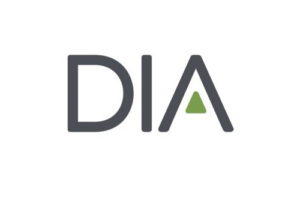Writing in the November 2024 edition of DIA’s Global Forum magazine, Johnson & Johnson’s Sandy Chan looks at the fast-evolving regulatory framework for medicines in the dynamic Asia-Pacific region.
Asia Pacific (AP) is an immensely diverse and dynamic region with varying regulatory capabilities and capacities; consequently, AP regulators and industry are always seeking opportunities to improve the regulatory environment by adopting best practices and leveraging innovative technology to accelerate patient access to new medicines. This spirit of close collaboration and interaction was reflected in the theme of DIA Singapore Annual Meeting 2024: Cultivating Synergies in Clinical Research and the Regulatory Environment to Innovate Healthcare. One thing is clear: AP is moving forward in step with contemporary global trends and innovations in adaptive regulatory frameworks, clinical research, and drug development.
Regulatory System Optimization
With the emergence of new technologies such as artificial intelligence (AI)/machine learning (ML) and new product types like regenerative cell and gene therapies, several AP regulatory authorities are going through a major transformation to rapidly adapt to this evolving environment while safeguarding public health. Japan’s Pharmaceuticals and Medical Devices Agency (PMDA), one of the most stringent regulatory authorities in the region, announced the agency’s New (Fifth) Mid-term targets, with the objectives of actively contributing to promote practical applications of regulatory science; to strengthen the agency’s international capability; and to improve the quality and efficiency of their services. Specifically, PMDA shared news of the establishment of its Centre for Regulatory Consultation of Paediatric and Orphan Drugs; its new notification regarding the Basic Principles for conducting Phase 1 studies in Japanese prior to initiating multiregional clinical trials (MRCTs); and the setup of regional offices in (Bangkok) Thailand and in Washington DC (US).
South Korea’s Ministry of Food and Drug Safety (MFDS) highlighted its recent World Health Organization (WHO) Listed Authority (WLA) designation and introduced the implementation of an enhanced expedited pathway, Global Innovative Products on Fast Track (GIFT). The agency also shared that they co-hosted their first international symposium on the use of AI in medical products with the US Food and Drug Administration (US FDA) in February 2024.
Other AP regulators such as the Indonesian Food and Drug Authority (BPOM) and Thailand FDA shared how their regulatory frameworks are optimized with digitalization, including the issuance of electronic labeling guidance and the initiation of pilot programs. For example, in September 2023, BPOM embarked on a two-year eLabelling pilot program utilizing the GS1 data matrix for serialization purposes, supported by the website and mobile app they developed. Other AP markets provide additional examples of eLabelling implementation.



